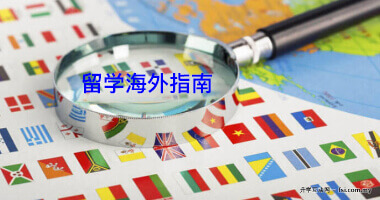Miri – 4 May 2017 – Graduates of Curtin University’s fiftieth year should carry the university’s legacy of excellence and innovation with great pride.
This was emphasised by Vice-Chancellor of Curtin University, Professor Deborah Terry, when addressing the graduating classes of 2016 from the Faculty of Business, Faculty of Humanities and Faculty of Engineering and Science of Curtin University, Malaysia (Curtin Malaysia) at their graduation ceremonies here recently.
The ceremony for the business and humanities faculties saw 306 students graduating with bachelor’s degrees in business, commerce and arts, and 33 students with master’s degrees in accounting and economics, finance, policy sciences and project management.
In a separate ceremony, 257 students of the Faculty of Engineering and Science graduated with bachelor’s degrees in engineering, science and technology, alongside 17 postgraduate students graduating with master’s and doctoral degrees in chemical, mechanical, electrical and petroleum engineering.
Professor Terry said 2017 is a very significant year for the university as it celebrates ’50 Years of Innovation’ in education, research, collaboration and engagement. Among the causes for celebration are its being named the fastest moving and most collaborative Australian university on the prestigious Nature Index; establishment of the Curtin Medical School; international accreditation of the Curtin Business School, an outcome achieved by only five percent of business schools worldwide; and its renewed commitment to being a genuinely global university with a campus in Dubai opening later this year to complement its campuses Australia, Malaysia and Singapore, as well as a strategic partnership with the University of Aberdeen.
She added that Curtin Malaysia has been making an impact locally, including last year’s opening of the new state-of-the-art Faculty of Engineering and Science Building; development of the Biotechnology Centre at Curtin Malaysia in collaboration with the Sarawak State Government; and significant progress on the Curtin Baram Project, an integrated research study of the Baram Catchment eco-system undertaken by researchers from both the Perth and Malaysia campuses.
Professor Terry also cited Curtin Malaysia’s graduates as being among the university’s achievements, describing them as the most tangible and most fulfilling indicator of the university’s success.
She highlighted the achievements of past graduates Nadia Ismadi and Anusha Shanmugaveloo who completed Bachelor of Commerce (Accounting and Finance) and Bachelor of Arts (Mass Communication) degrees respectively. Nadia was one of the founding members of the highly successful Curtin Malaysia Humanitarian Affairs organisation and continues to be a passionate champion of women’s empowerment. Anusha is a senior executive at Edelman Public Relations Worldwide and recently launched #stationstories, a global PR campaign for Shell Global.

Graduates seated in the 1,500-capacity Event Hall.
Professor Terry also applauded the successes of engineering graduates Esther Ling and Saaveethya Sivakumar who both completed Bachelor of Engineering (Electrical and Electronic) degrees and were former presidents of the Curtin Malaysia Institute of Electrical and Electronics Engineers (IEEE) Student Branch. Ling is now a representative of IEEE Young Professionals Malaysia, and in 2014, she was the first Malaysian to receive the prestigious IEEE Larry K. Wilson award. Saaveethya, meanwhile, received IEEE’s Outstanding Women in Engineering Volunteer Award in 2016.
In her closing remarks to the graduates, Professor Terry said that as Curtin University reflects with great pride on its achievements over the past 50 years, it does so in recognition of the critical role that universities play in modern societies and the impact it makes through its highly educated and skilled graduates.
“Be proud that you are graduating from a university recognised as being among the top two per cent in the world, one that is increasingly making its mark on the global stage. As graduates of our fiftieth year, you should carry the university’s legacy of excellence and innovation with great pride,” she concluded.
It was fifty years ago that Curtin University’s predecessor institution, the Western Australian Institute of Technology (WAIT), opened its doors to students for the first time, providing professionally oriented courses relevant to the needs of an ambitious and growing Western Australian economy.
In 1987, WAIT evolved into Curtin University but the character of the institution remained one of innovation, engagement and inclusion – traits that are reflected in the sophisticated global university it is today. In 1999, Curtin began providing classes in Sarawak and its campus in Senadin here opened in 2002.
Curtin Malaysia is Curtin’s largest international campus with over 4,000 students from close to 50 countries. In addition to offering the same courses and degrees as its Australian parent, it provides an undifferentiated student learning experience and Curtin’s strong learning support mechanisms such as online resources and distributed learning systems.
Present at the graduation ceremonies were Curtin University Chancellor Colin Beckett, Deputy Vice-Chancellor (International) Professor Seth Kunin, Curtin Malaysia Pro-Chancellor Datuk Patinggi Tan Sri Dr George Chan and Pro Vice-Chancellor, President and Chief Executive Professor Jim Mienczakowski.
Also present were Sarawak Assistant Minister of Tourism and Assistant Minister of Land and Air Transportation and Safety and Chair of the Curtin Malaysia Management Board, Datuk Lee Kim Shin; Chairman of Curtin (Malaysia) Sdn. Bhd., Datu Ose Murang, and members of the Curtin Malaysia Council, Board of Directors and Management Board.

The large gathering of graduates, academics and family members at Faculty of Engineering & Science graduation.

Elated graduates celebrate their achievement.
科廷大学(澳洲大学马来西亚分校) Curtin University Malaysia
http://www.fsi.com.my/会员专区/college-profile/?sponsor_id=20
http://www.fsi.com.my/curtin/










